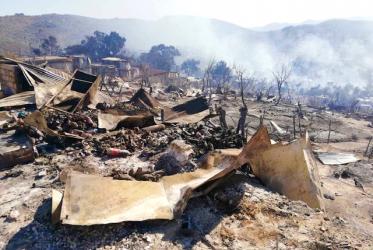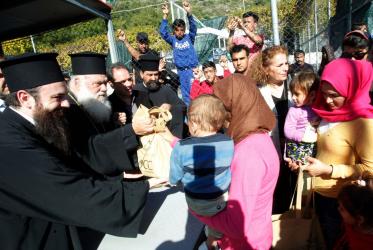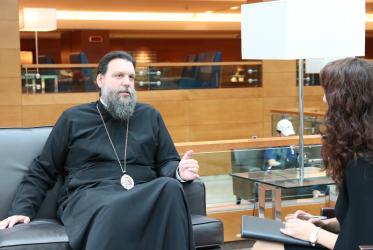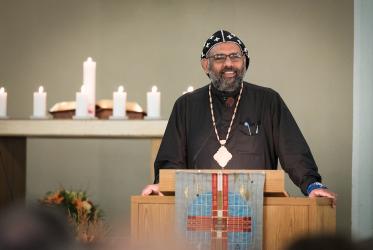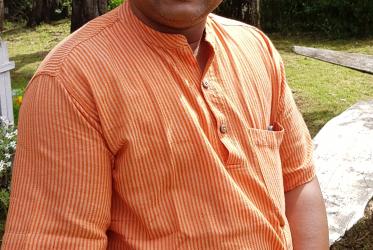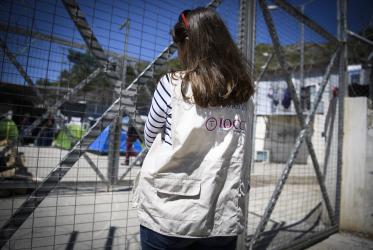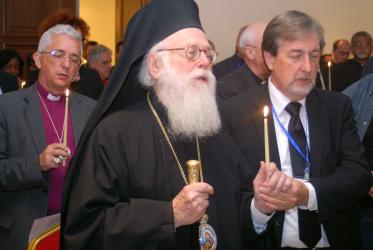Displaying 1 - 20 of 26
23 October 2020
The cry of the Papuans in Indonesia
14 November 2019
Metropolitan Zachariah Mar Nicholovos celebrates Silver Jubilee
26 November 2018
Paving the way for ecumenical studies, learning English in Bossey
24 September 2018
Dr Samuel George: “Ensure all are included"
12 June 2018
In the ecumenical movement to stay
26 April 2018
Christians in China warmly receive WCC delegation
12 January 2018
Echoes from Yangon
26 October 2017
"I hit the ground running": Katalina Tahaafe-Williams
16 February 2016
Fleeing from – rather than to – a place
10 February 2016
Local and global work saves lives
22 October 2015

